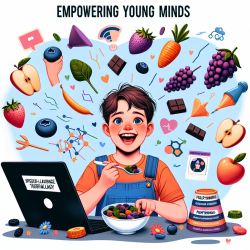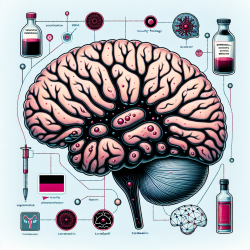Introduction
Attention-Deficit Hyperactivity Disorder (ADHD) is a prevalent neurodevelopmental disorder affecting approximately 5% of children worldwide. Characterized by inattention, impulsivity, and hyperactivity, ADHD can significantly impact a child's academic performance and social interactions. While the exact etiology remains elusive, both genetic and environmental factors, including diet, have been implicated in its development.
The Power of Polyphenols
Recent research has shed light on the potential benefits of dietary polyphenols in managing ADHD symptoms. Polyphenols, naturally occurring compounds found in plants, are known for their antioxidant and anti-inflammatory properties. A case-control study conducted in Iran explored the relationship between dietary polyphenol intake and the risk of ADHD in children aged 4 to 12 years.
Research Findings
The study involved 400 children, with 200 diagnosed with ADHD and 200 serving as healthy controls. The researchers utilized a comprehensive food frequency questionnaire to assess polyphenol intake and found a significant negative association between polyphenol consumption and ADHD risk. Specifically, a one-unit increase in polyphenol intake was associated with a decreased risk of ADHD, even after adjusting for factors such as body mass index, energy intake, socioeconomic status, gender, and age.
Implications for Practitioners
These findings underscore the potential role of dietary interventions in ADHD management. As practitioners dedicated to improving outcomes for children, incorporating polyphenol-rich foods into dietary recommendations could be a valuable strategy. Here are some practical tips for integrating these findings into practice:
- Promote a Polyphenol-Rich Diet: Encourage the consumption of fruits, vegetables, legumes, whole grains, and nuts, which are excellent sources of polyphenols.
- Educate Families: Provide resources and guidance on preparing meals that maximize polyphenol content, such as using cooking methods that preserve these compounds.
- Monitor Dietary Changes: Track the impact of dietary modifications on ADHD symptoms and adjust recommendations as needed.
- Collaborate with Nutritionists: Work with nutrition experts to develop tailored dietary plans for children with ADHD.
Encouraging Further Research
While the current study provides valuable insights, further research is needed to establish a causal relationship between polyphenol intake and ADHD. Prospective studies and clinical trials could help elucidate the mechanisms by which polyphenols influence ADHD symptoms and guide evidence-based dietary recommendations.
For practitioners eager to delve deeper into this topic, I encourage you to explore the original research paper: The association between dietary polyphenol intake and attention-deficit hyperactivity disorder: a case-control study.
Conclusion
As we strive to create positive outcomes for children, leveraging the power of nutrition and data-driven decisions can be transformative. By incorporating polyphenol-rich foods into dietary plans, we can support children with ADHD in reaching their full potential. Let's continue to explore and apply research findings to enhance the well-being of the children we serve.










